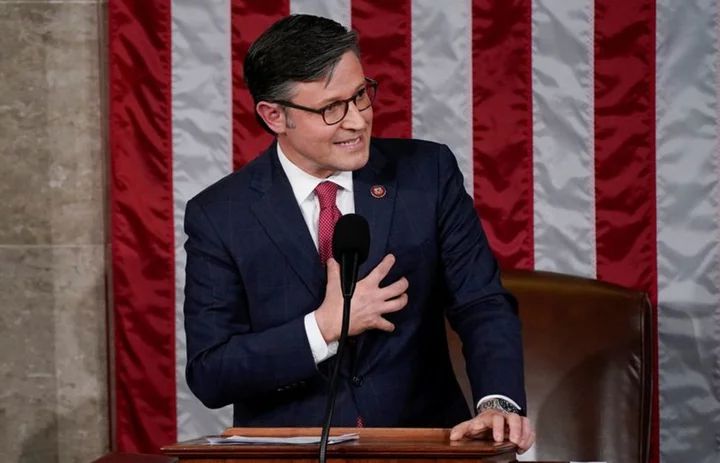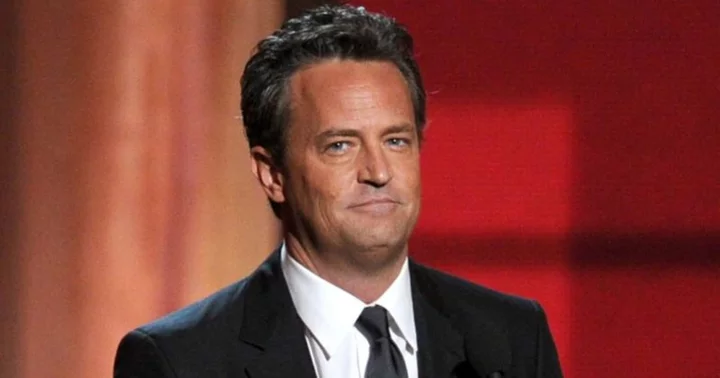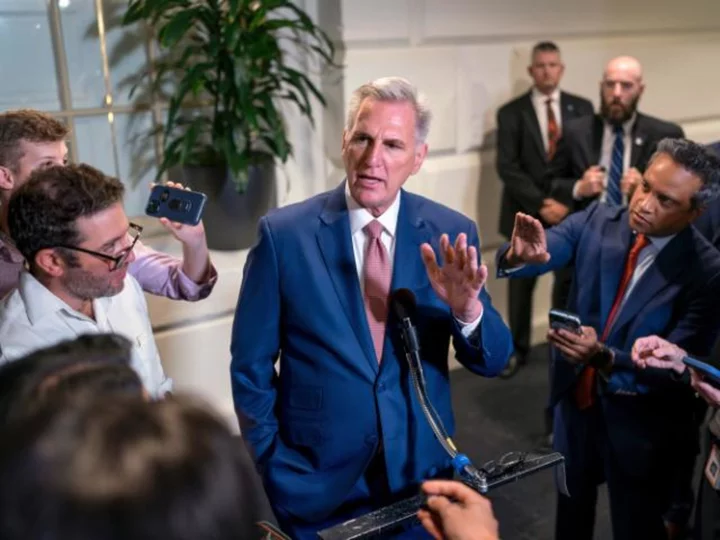By Andy Sullivan and Andrew Goudsward
WASHINGTON New U.S. House of Representatives Speaker Mike Johnson has joined his conservative Republican colleagues in voting against abortion and same-sex marriage, but has drawn the most attention for his efforts to overturn Donald Trump's 2020 election defeat.
His new role gives him huge clout steering the chamber, and a seat at the table with Democratic President Joe Biden and Senate Democratic Leader Chuck Schumer in negotiating bills of all kinds. But after action Congress took last year he'll have little ability to interfere with the 2024 presidential election, unless he refused to follow the law.
Since winning the speaker's gavel on Wednesday, the 51-year-old Louisiana lawmaker has declined to comment on his work with former President Trump following the 2020 election, or say whether he believes Biden legitimately won.
While he and 199 of his colleagues voted against the Electoral Count Reform Act of 2022, which was bundled in a year-end spending bill, that legislation will make it much harder for lawmakers to do anything but formally accept the results.
The bipartisan law, passed as a response to the chaos of Jan. 6, 2021, requires approval of one-fifth of the House and Senate to consider a challenge to a state's results -- a much higher bar than existed before, when any single lawmaker from each chamber had the ability to trigger a challenge.
"If it's followed we should be in good shape, and there should be every expectation that it would be followed," said Edward Foley, an election-law expert at the Ohio State University.
Democratic groups have blasted Johnson for his legal work advocating for conservative social causes before being elected to the House in 2016.
He defended his state's ban on same-sex marriage against two lawsuits in 2013, which ended when the U.S. Supreme Court legalized gay marriage nationwide two years later.
He also represented a biblical theme park in a religious discrimination lawsuit against the state of Kentucky and opposed a court ruling that struck down laws criminalizing gay sex.
In Congress, Johnson has voted with most of his fellow Republicans against legislation that would legalize abortion nationwide and provide some protections for same-sex marriage if the Supreme Court reverses his decision.
He voted against a September stopgap funding bill that narrowly averted a partial government shutdown, though he has since said that he now plans to support one ahead of the next looming funding deadline on Nov. 17.
TRUMP ELECTION FIGHT
Following Trump's defeat, Johnson crafted a legal brief, signed by 125 other House Republicans, that sought to persuade the Supreme Court to reject election results from several contested states Trump had lost to Biden.
Johnson argued not that the election had been tainted by widespread voter fraud, as Trump and many of his allies falsely claimed, but instead that some states Trump lost had illegally changed their election procedures during the COVID-19 pandemic, rendering the results from those states invalid.
Johnson stuck with those arguments even after the Supreme Court rejected the case.
"We are convinced the election laws in certain states were changed in an unconstitutional manner," Johnson wrote in a statement that was signed by 36 other House Republicans and released on Jan. 6, 2021, hours before a mob of Trump supporters stormed the U.S. Capitol in a failed attempt to disrupt the election certification.
Hours later, Johnson and 138 other House Republicans voted against certifying Biden's victory.
Johnson could be in a more prominent position in January 2025, when Congress meets to certify the results of next year's presidential race, provided Republicans retain control of the House and keep him as speaker.
Even then, he would have little ability to influence the outcome. "The speaker has a very limited and almost nonexistent role in Electoral College process," said Michael Thorning, an election-law expert at the Bipartisan Policy Center.
The law also clarifies that vice presidents only play a ceremonial role when they preside over the certification.
Foley said a House speaker could, in theory, refuse to follow the law or even declare themselves acting president. A House speaker also would have the ability to influence proceedings if it had to declare a winner if no candidate won a majority of electoral votes.
"It feels unrealistic, but what happened on Jan. 6, 2021, felt unrealistic, too, until it happened," he said.
(Reporting by Andy Sullivan and Andrew Goudesward; Editing by Alistair Bell)









